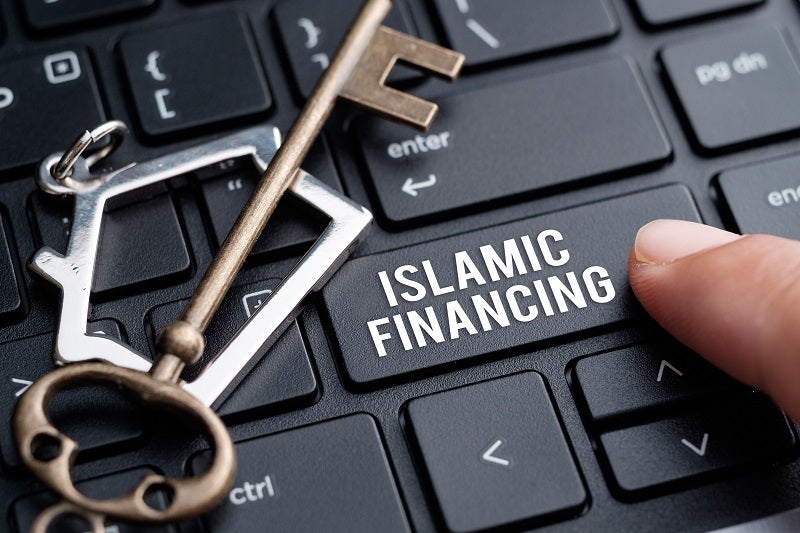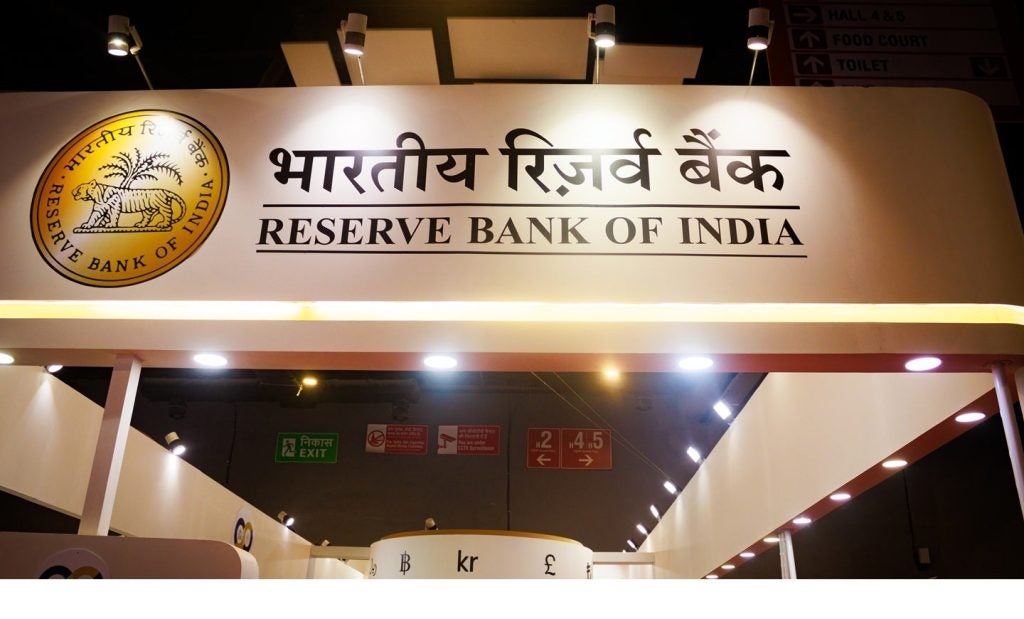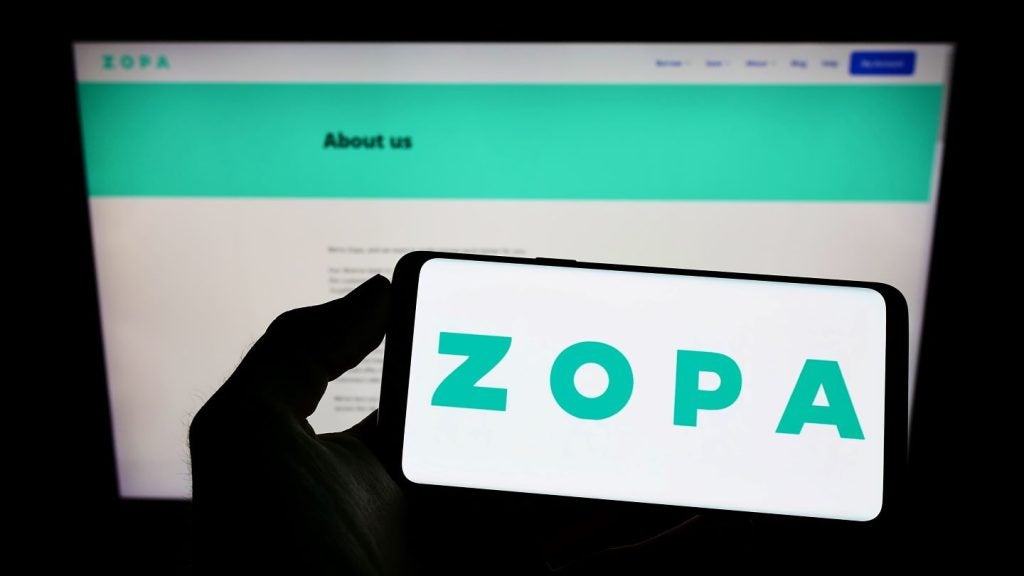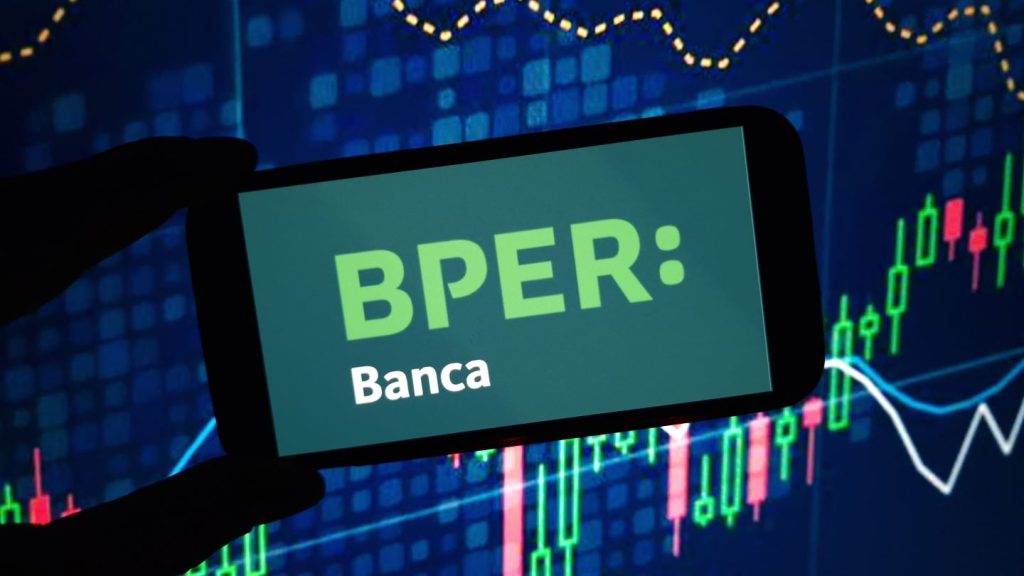
The increasing awareness on Islamic banking and finance has created a huge potential demand that Western banks have largely failed to tap into. Mohamed Dabo reports
Islamic banking was initially developed in recognition of the need of ordinary Muslims for borrowing and lending.
The most prevailing activity of Islamic banking in the predominantly Muslim societies of the Gulf and the Far East is retail banking.
Yet, in most of Europe, and the West, Islamic retail banking services offered to the general public are still rare.
Main article:
This appears to be a missed business opportunity as Europe’s Muslim community of about 50 million clearly outnumbers the total population of the Arab states in the Persian Gulf region of about 36.2 million.

US Tariffs are shifting - will you react or anticipate?
Don’t let policy changes catch you off guard. Stay proactive with real-time data and expert analysis.
By GlobalDataIslamic finance
Islamic finance is a way to manage money that keeps within the moral principles of Islam. It covers things like saving, investing, and borrowing to buy a home.
The moral principles many Muslims live their lives by are sometimes known as the ‘Shari’ah’. So, you may hear Islamic financial services described as ‘Islamic finance’ or ‘Shari’ah-compliant’.
What makes Islamic finance different?
Islamic finance is based on a belief that money shouldn’t have any value in itself. It’s just a way to exchange products and services that do have a value.
Linked to this way of thinking about money, is the idea that you shouldn’t make money from money. This means that wherever possible, getting involved in interest by either paying or receiving it should be avoided.
Another important idea that underpins Islamic finance is that it shouldn’t cause harm. For that reason, Islamic financial services should not invest in things like alcohol, tobacco, and gambling.
Islamic finance also encourages partnership. This means that, where possible, both profit and risks should be shared. This can be between two individuals, an individual and a business, or a business and a business.
Anyone can use Islamic finance products and services – you don’t have to be Muslim.
The way Islamic finance works
There are a number of Islamic finance products and services available in the UK.
A Shari’ah-compliant current account doesn’t pay interest. Instead, in return for having ready access to your money, the deposit you give the bank is used as an interest free loan. This loan is known as a ‘qard’.
If you open a savings account, the bank will invest the money you deposit. But they won’t invest it in anything the Shari’ah says is harmful.
The bank will pay you part of any profit they earn. Depending on what is invested in and how the profit is worked out, this might be called a ‘wakalah’ (where the bank acts as your agent) or a ‘murabahah’ (where a bank buys and trades in commodities to earn a profit).
When it comes to buying a home, there are a couple of alternatives to a traditional mortgage.
In one type of agreement, the bank can directly buy the property you want. Then they sell it to you at a profit and let you pay it back in instalments. This is also called a ‘murabaha’ contract (because they are buying the property and selling it to you at a profit).
Or you can buy the property jointly with a bank, in what is called a ‘musharakah’ (partnership) contract. Then over time you gradually pay the bank for its share of the property.
In both cases, the bank charges you extra to cover their costs and to reflect the fact you’re living in a property they partly own.
Compliance with Shari’ah principles
Islamic finance firms will normally appoint a Shari’ah Supervisory Board (SSB) of Islamic scholars, to certify and evidence the fact that their activities and products are compliant with Shari’ah principles.
These scholars are trained in the specialised religious jurisprudence relating to commercial activity (‘fiqh al mu’amalat’), in addition to having a general grounding in both jurisprudence and conventional finance.
Not all religious scholars will be qualified to sit on SSBs.
In some jurisdictions, SSB scholars are approved centrally by the regulator, while in others — such as the United Kingdom — they are not, having instead similar status to a firm’s external legal counsel or auditors.
The global Islamic finance industry
The global Islamic finance industry has grown rapidly over the past fifteen years. While reliable figures are difficult to obtain, some estimates put the size of the market at approximately £1.9trn as of end‑2016.
Approximately three quarters of this is constituted of banking assets, with most of the remainder capital markets and a small proportion of Shari’ah compliant insurance.
Much of the activity is concentrated in countries with significant Muslim populations, especially in the Middle East and Asia.
The prohibition on many forms of traditional banking in Islamic finance should naturally spur exploration of more innovative forms of intermediation.
There’s great interest in exploring the scope for Islamic fintech like Shari’ah compliant e-money platforms and peer-to-peer lenders, to tackle a range of issues, including financial inclusion.
The UK is a world leader in this sector.
The Islamic finance industry in the United Kingdom
In the United Kingdom, there are currently five standalone Islamic banks. These firms have an aggregate balance sheet of approximately £3.5bn.
There are also over 20 conventional banks in the United Kingdom operating Shari’ah compliant windows, and numerous investment management, advisory, and insurance sector firms.
The UK regulatory approach to Islamic finance
In the UK, all financial firms are supervised under the same unitary and principles‑based regulatory framework.
Firms engaging in Islamic finance are not subject to separate rules, as this might give rise to regulatory arbitrage, that is, the risk of parallel regulatory regimes in which one set of requirements is considered to be more favourable or less onerous than the other.
The UK authorities emphasise a non-discriminatory approach, endeavouring to ensure a level playing field for all financial firms, to the greatest extent possible.
The global financial crisis: a missed opportunity
When the financial crisis of 2007–2008 brought the conventional financial system to its knees, Western banks missed a golden opportunity. Amid the confusion and consternation, Islamic banking had a gilt-edged chance to step into the breach.
“When Western banking collapsed, one sector should have escaped unscathed: Islamic banking,” says Mohammad Saeed Rahman, chairman of a US-based think tank, the Institute for Halal Investing.
At that time, the world needed another hero. A way of doing business that was free from rampant speculation, free from excessive risk and was banking back-to-basics – taking deposits from savers and lending to borrowers for a profit.
Arising from the glittering new cities of the East, primarily Dubai and Singapore, was the champion of Islamic banking.
Faith in finance
“Technically, Islamic banks should have sidestepped the falling grand piano,” says the Institute for Halal Investing’s Mr Rahman. “The industry was not allowed exposure to CDOs, derivative products and the kind of intra-financial counterparty risk that crippled the conventional banks.
“It couldn’t play the sub-prime mortgage game, was backed by real money in the form of petro-dollars and manufacturing export receipts. It was simple, straightforward banking.”
The two main principles of Islamic banking are an avoidance of interest and an avoidance of uncertainty. Islamic economics is a well-documented system, practiced by the Prophet Mohammed, a merchant, and his companions.
The core of the Islamic economic system is an avoidance of usury. Islam is not anti-moneymaking. In fact, the Thatcherite dogma of self-reliance and entrepreneurship is championed in the Islamic sacred book, the Koran.
What is discouraged is making money from money. Risk-sharing and trading is the central tenet of Islamic economics.
The financial institution goes into partnership with the borrower, and both share from the profits of the venture. It is very similar in approach to private equity.







